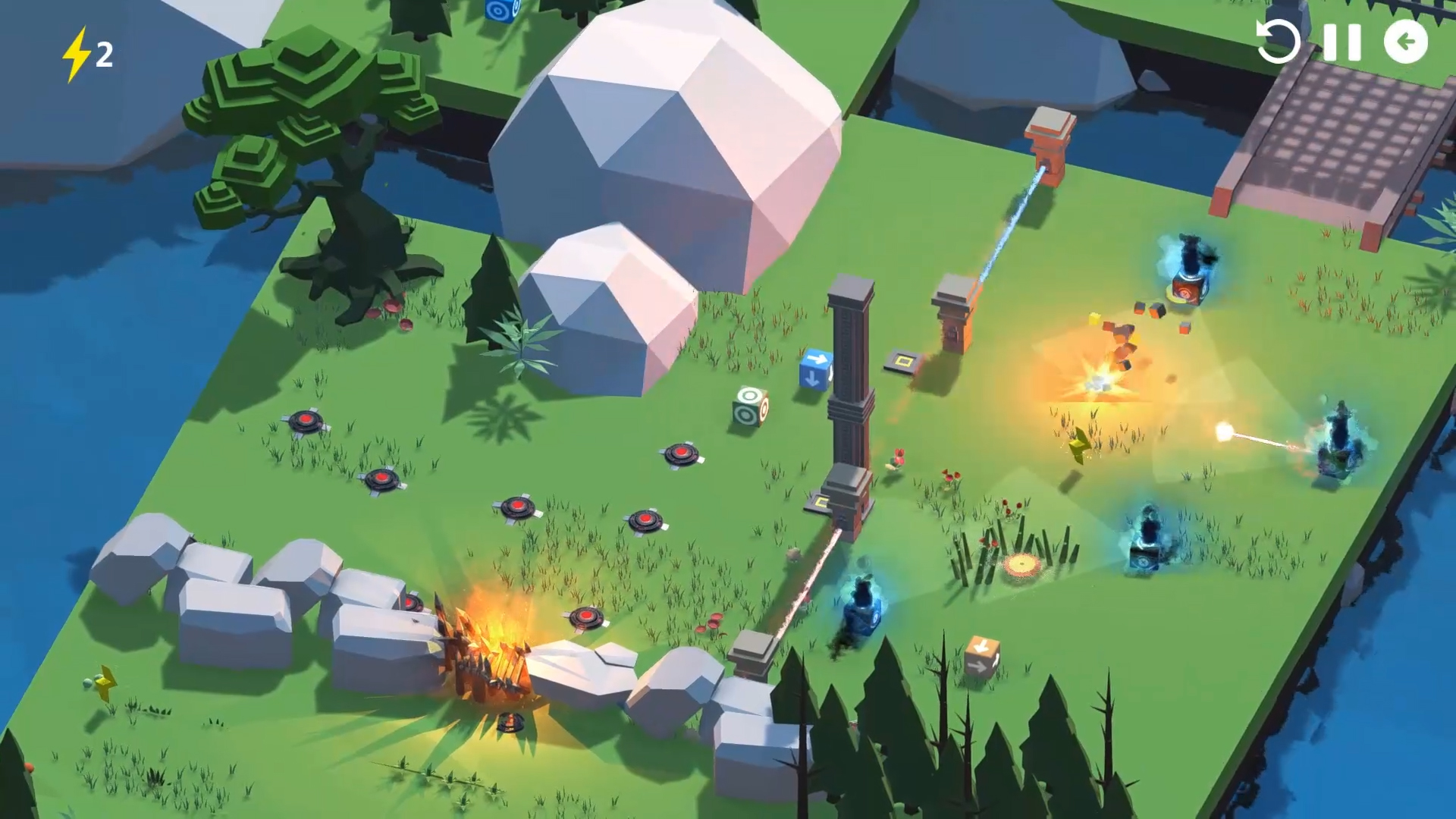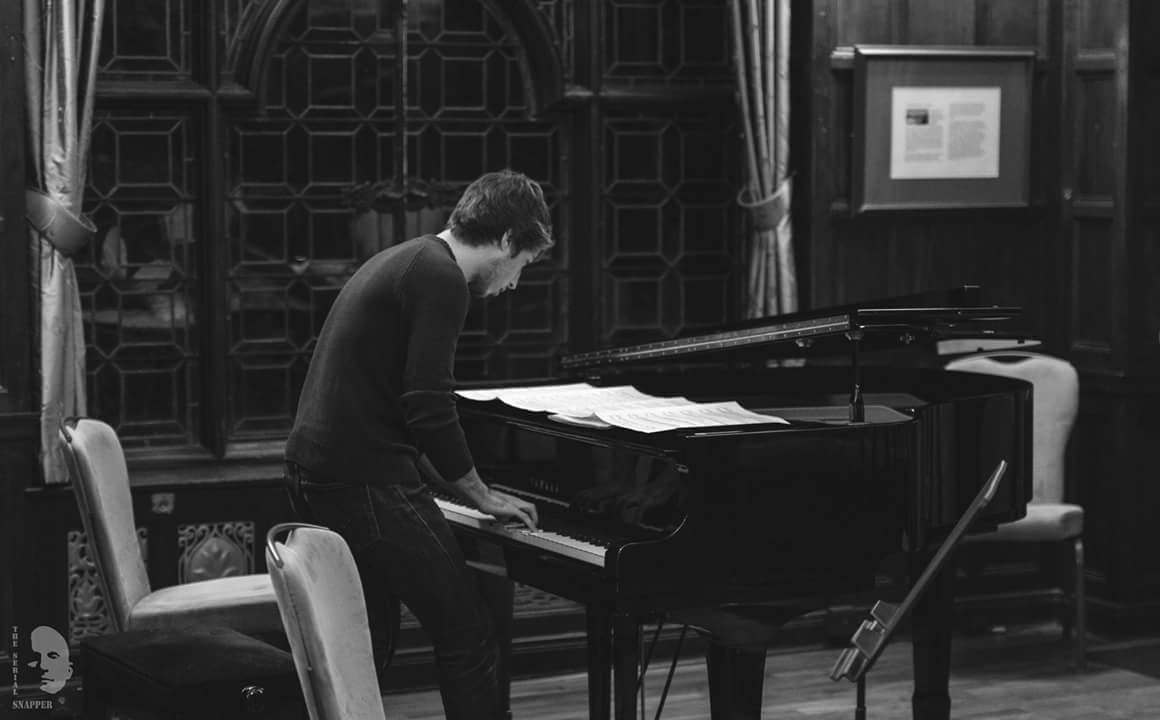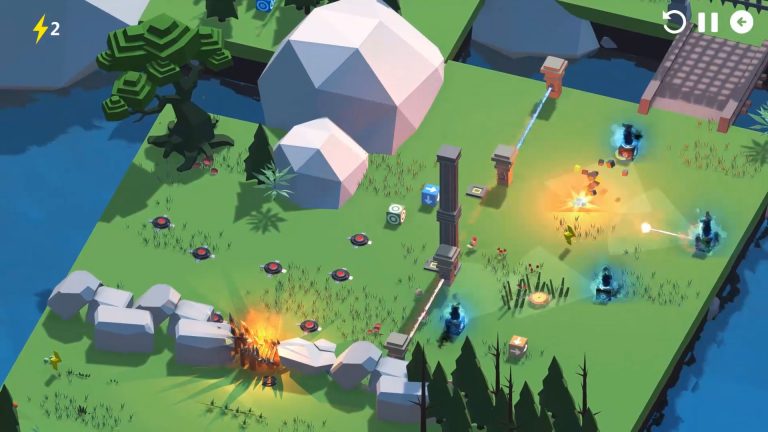When I was in elementary school, in Saratoga Springs, New York, USA, I would finish my homework and sometimes go down to the basement. There, I would turn on my Nintendo Gamecube, and play video games, sometimes alone, sometimes with family or friends. One thing grabbed my attention more than anything else – the music.
Players often spend large amounts of time in one place, one world, one atmosphere in games, letting a player take in in the sights and sounds of the space the game developer has created. There can be a connection with the atmosphere, the music, even more intimate than movies or TV or concerts.
Through this backdrop, I’ve taken on the role of composer for Streetlamp Games’ puzzle video game Cubots: The Origins, working with a team that has allowed me creative freedom with the soundtrack. Using classical and electronic elements via ProTools (a digital recording software), with a focus on simple melodies, I’ve created music that is concise, and loopable, meaning it can repeat forever.
There are many magical atmospheres in modern games – The Legend of Zelda: Breath of the Wild (2017), Abzû (2016), and Everybody’s Gone to the Rapture (2015), to name a few. These games feature soundtracks that bring a player fully into their worlds and use classical and electronic elements that continue western music’s rich, powerful, and emotional history.
And the games are financially successful as well, bringing in money to not only support the creation of more quality games, but also the creation of more quality music. As the average income of Indians increases, game developers have been popping up in the last few years to take advantage of this lucrative, emerging market.
Like a painter who thinks about brushes and colours before painting, my building of a sonic world involves getting instruments, emotions, and melodies together before even sitting down at the computer. For me, this is the first and most time-consuming step.
Through this backdrop, I’ve taken on the role of composer for Streetlamp Games’ puzzle video game Cubots: The Origins, working with a team that has allowed me creative freedom with the soundtrack. Using classical and electronic elements via ProTools (a digital recording software), with a focus on simple melodies, I’ve created music that is concise, and loopable, meaning it can repeat forever. I use a variety of instruments – piano, clarinets, synths, Saudi Arabian electronic drums and dulcimers, among others.

FOREST (SMALL) – track from Cubots: The Origins
DESERT (BIG) – track from Cubots: The Origins
This variety makes working in video games creatively rewarding. One might write an Arabian style track, then switch gears to write something in a more relaxed American Minimalist style. It’s just fun. As is common in commercial settings, there can be a quick work turnaround (like three tracks of music in a few days, or similar deadlines), which can be tricky, but also helps drive the creative process.
Like a painter who thinks about brushes and colours before painting, my building of a sonic world involves getting instruments, emotions, and melodies together before even sitting down at the computer. For me, this is the first and most time-consuming step. For Cubots, my sonic world took a couple days to plan formally, though I was thinking about possibilities when I first came across the project, so the tracks were written with minimal setbacks.

Overall, India’s budding game development community is warmly welcomed by the international industry, providing opportunity for composers to create unique, effective scores for energetic new game companies. I’ve had a great time working with India, and I’ll certainly be following along as the country breaks into this exciting virtual frontier.




